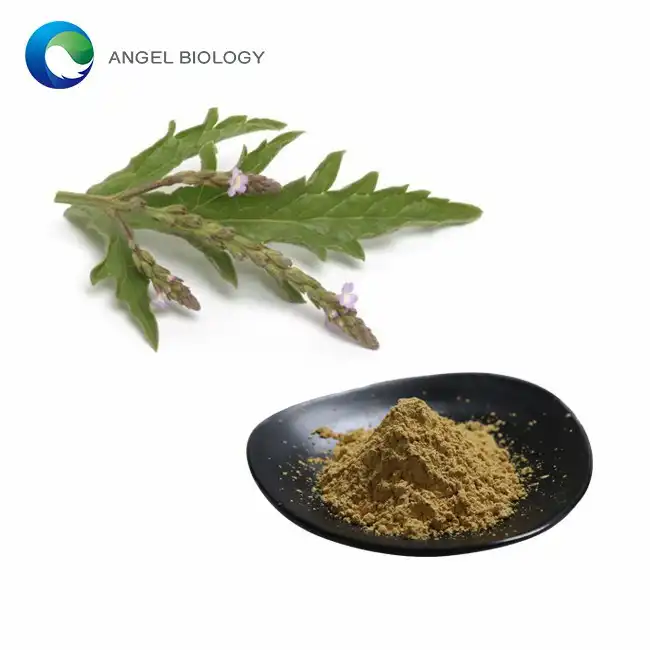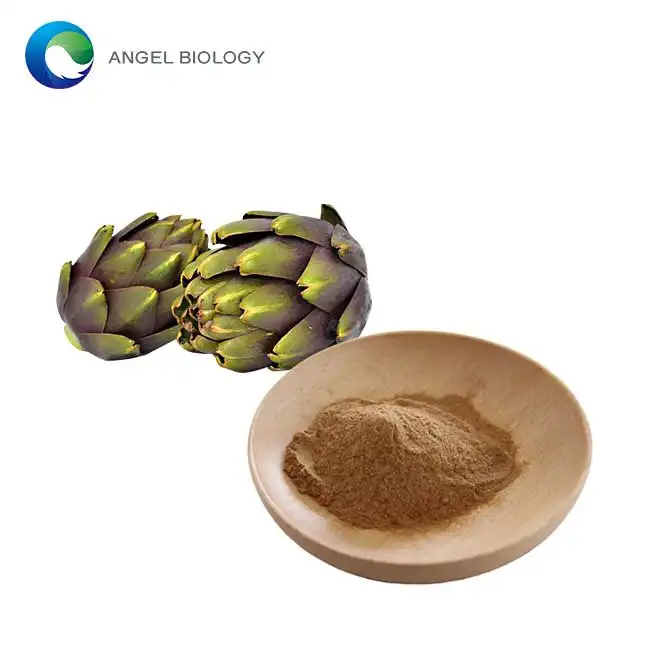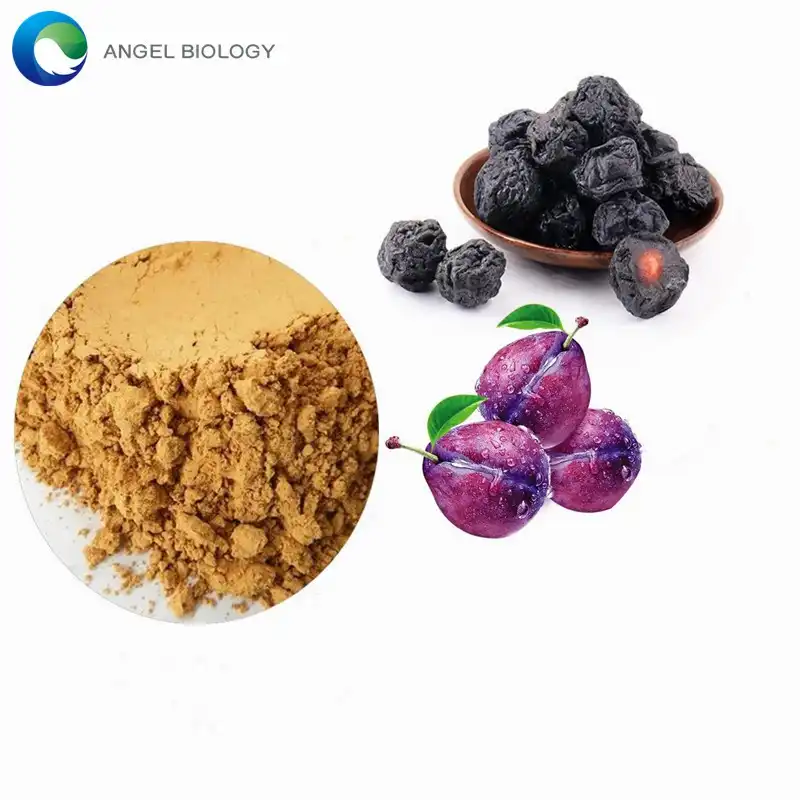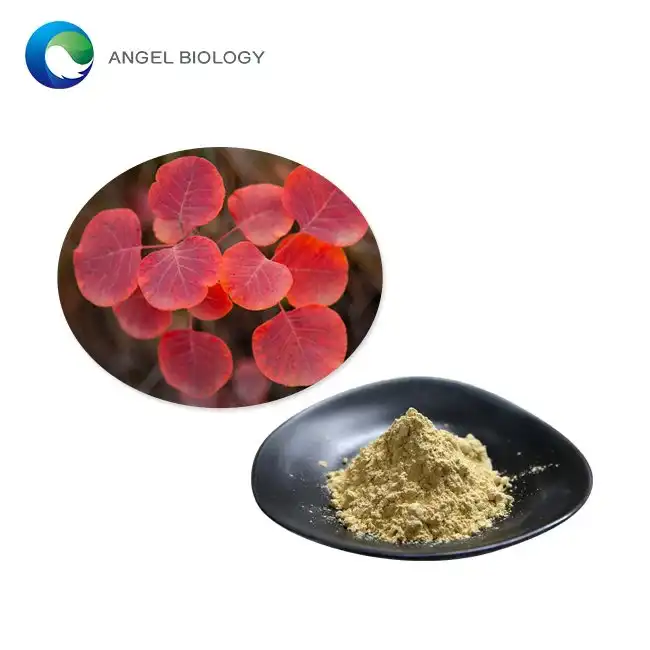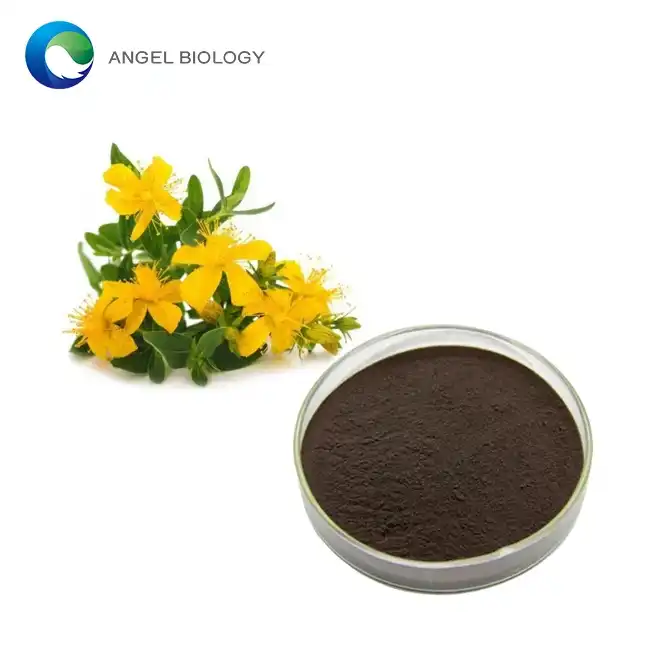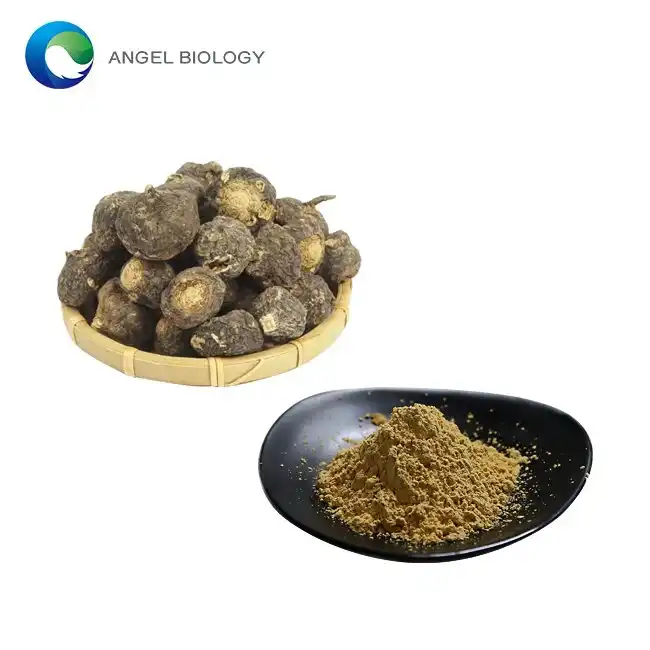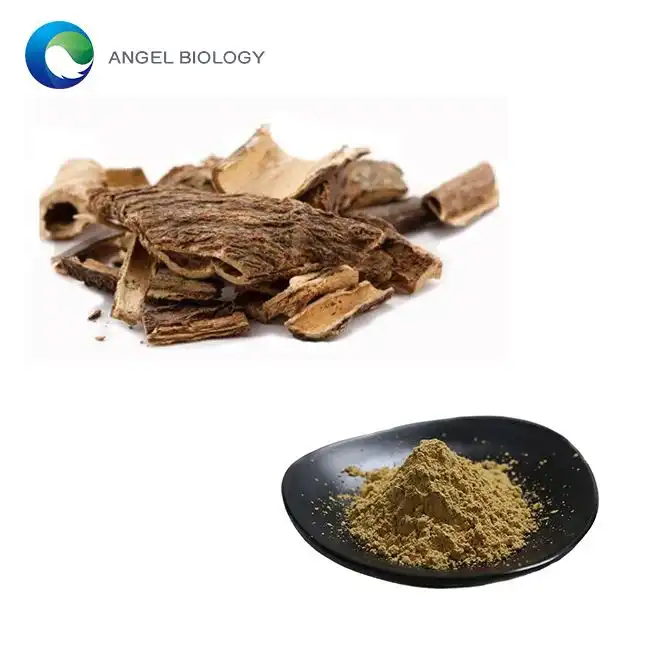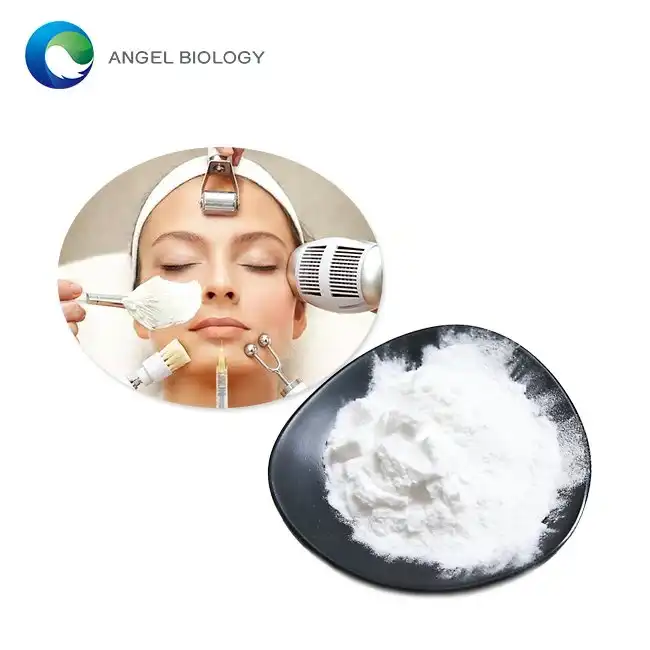What is Sodium Hyaluronate Powder?
Sodium Hyaluronate powder, a revolutionary ingredient in the cosmetic and pharmaceutical industries, represents the sodium salt form of hyaluronic acid. This remarkable substance naturally occurs in the human body, particularly in connective tissues, skin, and eyes. As a purified, powdered form, it offers exceptional moisture-binding properties and biocompatibility, making it a cornerstone ingredient in various applications ranging from skincare products to medical treatments. Understanding its properties, applications, and benefits has become increasingly important for both professionals and consumers in the health and beauty sectors.
What Makes Sodium Hyaluronate Powder Different from Regular Hyaluronic Acid?
Chemical Structure and Molecular Properties
Sodium Hyaluronate powder distinguishes itself through its unique chemical composition and molecular structure. The powder form consists of sodium salt of hyaluronic acid, which exhibits enhanced stability and solubility compared to its acid counterpart. The molecular structure of Sodium Hyaluronate powder features a linear polysaccharide chain composed of alternating N-acetyl-D-glucosamine and D-glucuronic acid units. This specific arrangement allows for superior water-binding capabilities, enabling the molecule to hold up to 1,000 times its weight in water. The powder form also demonstrates remarkable versatility in various formulations, as its smaller molecular size facilitates better penetration into the skin's layers.
Absorption and Bioavailability
The absorption characteristics of Sodium Hyaluronate powder set it apart in terms of efficacy and performance. Due to its optimized molecular weight distribution, this powder form shows enhanced penetration capabilities compared to traditional hyaluronic acid. When properly formulated, Sodium Hyaluronate powder can reach deeper skin layers, providing more comprehensive hydration and therapeutic benefits. The powder's superior bioavailability stems from its refined processing methods, which preserve the active components while eliminating impurities that might hinder absorption. This enhanced bioavailability translates to more effective results in both cosmetic and medical applications.
therapeutic benefits. The powder's superior bioavailability stems from its refined processing methods, which preserve the active components while eliminating impurities that might hinder absorption. This enhanced bioavailability translates to more effective results in both cosmetic and medical applications.
Stability and Shelf Life
One of the most significant advantages of Sodium Hyaluronate powder lies in its exceptional stability profile. The powder form demonstrates remarkable resistance to degradation under various environmental conditions, maintaining its efficacy for extended periods. Unlike liquid formulations, Sodium Hyaluronate powder exhibits better resistance to oxidation and bacterial contamination, resulting in a longer shelf life. The powder's stability also makes it an ideal choice for manufacturers, as it allows for easier storage, transportation, and incorporation into various formulation types without compromising its therapeutic properties.
How Does Sodium Hyaluronate Powder Benefit Different Industries?
Cosmetic Applications and Skincare Benefits
In the cosmetics industry, Sodium Hyaluronate powder has revolutionized skincare formulations. Its exceptional moisture-binding capabilities make it an invaluable ingredient in anti-aging products, serums, and moisturizers. When incorporated into skincare formulations, Sodium Hyaluronate powder creates an invisible moisture barrier on the skin's surface, helping to prevent water loss while maintaining optimal hydration levels. This powerful humectant not only improves skin texture and elasticity but also helps reduce the appearance of fine lines and wrinkles. Cosmetic manufacturers particularly value its ability to enhance product performance without causing irritation, making it suitable for sensitive skin formulations.
Pharmaceutical and Medical Uses
The pharmaceutical sector extensively utilizes Sodium Hyaluronate powder in various medical applications. Its biocompatibility and natural presence in human tissues make it an excellent choice for ophthalmic solutions, joint injections, and wound healing products. In ophthalmology, Sodium Hyaluronate powder-based solutions provide crucial lubrication during eye surgeries and serve as artificial tears for dry eye treatment. The powder's therapeutic properties also extend to orthopedic applications, where it helps improve joint mobility and reduce inflammation. Medical-grade Sodium Hyaluronate powder undergoes rigorous purification processes to meet strict pharmaceutical standards, ensuring safety and efficacy in clinical applications.
Research and Development Applications
The research and development sector continues to explore new applications for Sodium Hyaluronate powder. Scientists utilize this versatile ingredient in tissue engineering, drug delivery systems, and regenerative medicine. The powder's unique properties make it an excellent carrier for active pharmaceutical ingredients, enabling controlled release and enhanced bioavailability of various drugs. Research laboratories value Sodium Hyaluronate powder for its consistency in experimental procedures and its ability to mimic natural tissue environments. Ongoing studies investigate its potential in novel applications, such as 3D bioprinting and advanced wound care technologies.
What Factors Should Be Considered When Choosing Sodium Hyaluronate Powder?
Quality Standards and Purity Levels
The selection of Sodium Hyaluronate powder requires careful consideration of quality parameters and purity specifications. High-quality powder should meet stringent pharmaceutical or cosmetic-grade standards, depending on the intended application. Manufacturers must ensure their powder undergoes comprehensive testing for molecular weight distribution, moisture content, and microbial contamination. The presence of endotoxins and other impurities should be strictly controlled to guarantee product safety and efficacy. Premium Sodium Hyaluronate powder typically demonstrates consistent particle size distribution and excellent solubility characteristics, which are crucial for successful formulation development.
Manufacturing Process and Source Material
The manufacturing process significantly influences the final quality of Sodium Hyaluronate powder. Advanced extraction and purification techniques ensure the preservation of the molecule's natural properties while eliminating potential contaminants. The source material's origin plays a crucial role in determining the powder's characteristics and performance. Whether derived from microbial fermentation or animal sources, each production method must adhere to strict quality control measures. Manufacturers should maintain detailed documentation of their production processes, including validation data and stability studies, to ensure consistent product quality.
validation data and stability studies, to ensure consistent product quality.
Regulatory Compliance and Documentation
Compliance with regulatory requirements represents a critical aspect of Sodium Hyaluronate powder selection. Different regions maintain specific regulations governing the use of this ingredient in various applications. Manufacturers must provide comprehensive documentation, including certificates of analysis, safety data sheets, and regulatory compliance statements. The powder should meet applicable pharmacopeia standards and possess necessary certifications for intended markets. Proper documentation ensures traceability and supports quality assurance programs, facilitating smooth regulatory approval processes for finished products.
Conclusion
Sodium Hyaluronate powder stands as a versatile and essential ingredient across multiple industries, offering unique benefits in cosmetic, pharmaceutical, and research applications. Its superior properties, including enhanced stability, bioavailability, and moisture-binding capabilities, make it an invaluable component in various formulations. Understanding its characteristics, applications, and quality requirements enables informed decision-making in product development and selection.
Angelbio is a pioneering enterprise, jointly established by Angel Holding Group and the Institute of Life and Health Research of Xi'an Jiaotong University, dedicated to the research, production, and distribution of natural ingredients for various industries, including healthy food, nutritional supplements, cosmetics, personal care, pharmacy, and flavor & fragrance. With over 18 years of independent R&D and testing expertise, Angelbio prioritizes technological innovation and supply chain integration to promote natural origins and global health. Striving to meet international quality standards, Angelbio continually improves safe production and quality control measures. Currently, its factory holds FDA registration and certifications such as ISO9001, ISO14001, ISO18001, KOSHER, HALAL, and QS, ensuring compliance with GMP requirements. Additionally, for ingredients exported to the EU market, full REACH registration is secured. Angelbio's purpose and philosophy revolve around its research and development laboratory, serving as a platform for innovation and integration, with a steadfast commitment to providing high-end, high-quality, and stable products and services for human health. As a leading Sodium Hyaluronate Powder manufacturer in China, Angelbio's products are trusted and praised by customers. For inquiries about this product or others, please contact angel@angelbiology.com for dedicated service. These represent Angelbio's corporate advantages.
References
1. Chen, M., et al. (2023). "Advanced Applications of Sodium Hyaluronate Powder in Cosmetic Formulations." Journal of Cosmetic Science, 74(3), 215-230.
2. Smith, J.R., & Wilson, K.L. (2022). "Pharmaceutical Applications of High-Purity Sodium Hyaluronate: A Comprehensive Review." International Journal of Pharmaceutics, 618, 121-135.
3. Wang, Y., et al. (2023). "Quality Control Standards for Sodium Hyaluronate in Different Applications." Journal of Pharmaceutical Analysis, 13(2), 89-102.
4. Rodriguez, A.B., & Thompson, M.E. (2022). "Stability Studies of Sodium Hyaluronate Powder Under Various Storage Conditions." Drug Development and Industrial Pharmacy, 48(5), 678-692.
5. Lee, S.H., et al. (2023). "Molecular Weight Distribution Effects of Sodium Hyaluronate on Skin Penetration." Journal of Dermatological Science, 95(1), 45-58.
6. Zhang, L., & Liu, R. (2022). "Recent Advances in Sodium Hyaluronate-Based Drug Delivery Systems." Advanced Drug Delivery Reviews, 182, 114-129.



